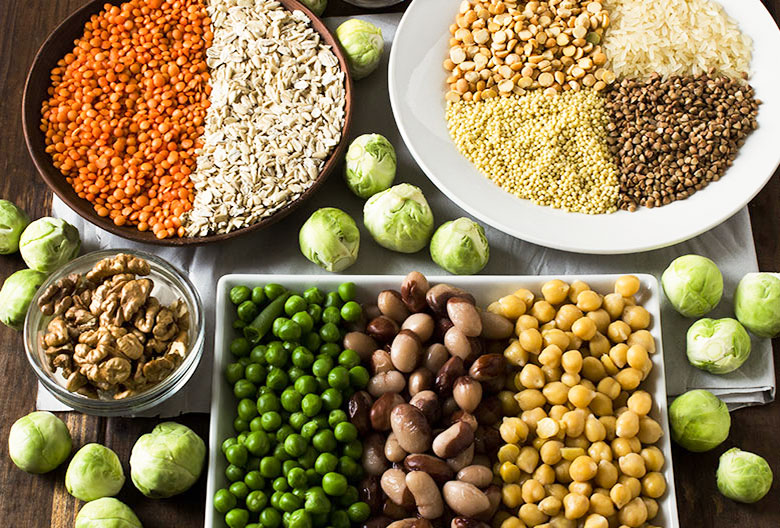- Functional foods are conventional and modified foods that according to the Academy of Nutrition and Dietetics have “additional health benefits” beyond basic nutrition that may decrease risk.
- The Food and Drug Administration (FDA) under the authority of the Federal Food, Drug, and Cosmetic Act regulates “functional foods” and/or “nutraceuticals.”
- A food that is considered “fortified” with added “vitamins, omega-3s, or other possibly healthy components” does not necessarily make a food healthy and beware of the “health halo.”
Unfortunately health claims are often used as a “marketing tool” by the food industry and this is true with functional foods. Some examples follow:
Whole grains are considered functional foods because of the many health benefits including: protection from cardiovascular disease, diabetes, and certain cancers. Whole grains are unique in that they are naturally low in fat, cholesterol-free, 10% to 15% protein, and a good source of dietary fiber, resistant starch, oligosaccharides, trace minerals, vitamins, antioxidants, numerous phytochemicals, and phytoestrogens.
Plant stanols/ sterols (also called phytosterols) are found in wheat germ, wheat bran, peanuts, vegetable oils (corn, sesame, canola and olive oil), almonds and Brussels sprouts can be added to foods to reduce serum levels of total and LDL cholesterol. This is related to partial inhibition of the absorption of dietary and biliary cholesterol in the human intestine.
- The consumption of 2-3 grams of stanol/ sterol ester could significantly reduce cholesterol levels by 6-15%. For example a 10% additional LDL lowering from plant stanols or sterols is very significant and is equivalent to more than a doubling of a statin dose. Each doubling of a statin dose lowers LDL about another 5-6%. The National Cholesterol Education Program recommends 2 grams of plant stanols/sterols per day as an adjunct to lower cholesterol; however, clinical study evidence of “improved clinical cardiac event reduction” is lacking.
Phytosterols may provide a drug-free solution for some to lower high cholesterol levels and have been incorporated into some low-fat foods including bread and cereals, low-fat milk, and low-fat yogurt -but read labels and remember the same food may contain unwanted extra sugars. Some of the commercial foods that have been fortified with sterol/stanol esters include: Benecol spread (0.85g/tbsp), Healthy Heart Yogurt 0.4g/6 oz.), Lifetime lowfat cheese (0.65g/1 oz.), Minute Maid Premium Heartwise orange juice (0.04g/8 oz.), Nature Valley Healthy Heart Chewy Granola Bars (0.4g/bar), Orowheat whole grain bread (0.4g/1 1/2 slices) and Take Control spread (1.7g/Tbsp).
Fortified with chemicals?
The federal agency charged with consumer protection from unsafe foods is the FDA. Unfortunately processed foods commonly have a laundry list of chemicals added primarily to improve marketability. Added chemicals may for example improve taste, and improve better shelf life and ultimately profitability. Some food additives are exempt from FDA oversight. An example of chemicals that does not requite “premarket” approval includes such chemicals added to foods often for better shelf-life, added moisture and palatability are technically not considered “food additives”. These additives fall into the category “generally recognized as safe” (GRAS). Examples: chemical preservatives: sulfur dioxide , benzoates, sorbates, sulfites, artificial flavor enhancers: MSG (monosodium glutamate), antioxidants: BHA (butylated hydroxyanisole and BHT (Butylated Hydroxytoluene).

